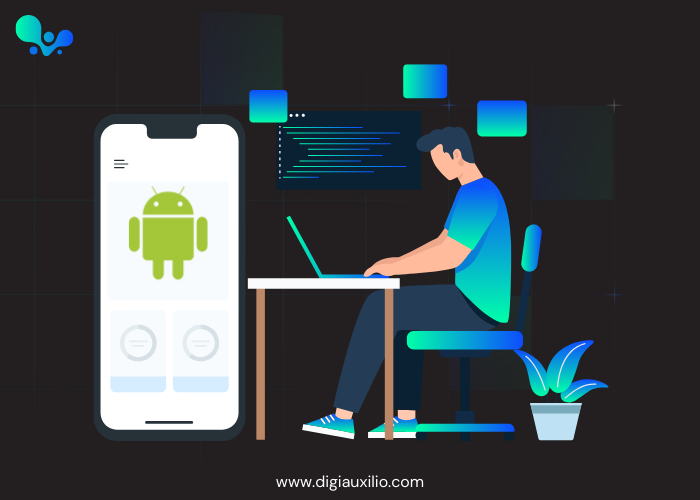Without any question, Android is the operating system that powers billions of devices worldwide. Therefore, the learning of Android app development is not something that can be left to a programmer’s choice; it has become a compulsion because of today’s technology. No matter if you belong to the group of beginners starting to get in touch with mobile app development or the group of experienced developers extending your knowledge, diving into the basics of Android app development would be beneficial to create functional, high-performing, and user-friendly applications.
1. Understand the Android Ecosystem
Getting a grasp of mobile technology is crucial to being an effective Android developer. Android differs from iOS in the sense that the various devices supporting the Android OS come in different shapes and sizes as well as hardware configurations. From budget smartphones to expensive tablets, the various devices must be supported by an application seamlessly functioning across devices.
This means programmers must focus on:
- Designing responsive layouts.
- Testing apps on various screen sizes and resolutions.
- Optimizing performance for devices with limited resources.
Compatibility is a critical aspect of Android development and often separates successful apps from the rest.
2. Learn the Core Programming Languages
Android development relies primarily on Java and Kotlin.
- Java has been the traditional language for Android and is still widely used.
- Kotlin, introduced as an official language by Google, is now the preferred choice because it reduces boilerplate code, improves readability, and integrates seamlessly with Java.
- Stable apps depend on a good command of either language. Programmers should also know XML because that is what it uses for UI layout designing in Android.
3. Get Comfortable with Android Studio
Every programmer who goes into Android has to know Android Studio, the official Integrated Development Environment (IDE). It gives strong tools for coding, finding mistakes, testing, and making your app better.
Some features include:
- Built-in emulators for testing apps.
- Code completion and refactoring tools.
- Performance profiling to identify and fix issues.
Mastering Android Studio boosts productivity and helps you create high-quality applications efficiently.
4. Master the Fundamentals of UI/UX
The soul of any mobile application is comprised of an attractive and easy-to-use interface. As an Android developer, basic knowledge of UI/UX design.
This includes:
- Creating intuitive navigation
- Following Google’s Material Design Guidelines.
- Using proper color schemes, typography, and layout consistency.
Remember, users judge an app not just by its features but also by how easy and pleasant it is to use.
5. Understand Android Components
Every Android app is built on four key components:
- Activities—Represent a single screen with a user interface.
- Services—Run in the background to perform long-running tasks.
- Broadcast Receivers—Handle communication between the Android system and apps.
- Content Providers—Manage access to structured data such as contacts.
Understanding how these components work together is crucial for building well-structured and scalable apps.
6. Focus on App Performance & Security
An application’s performance directly correlates with its success. Users do not tolerate slow, battery-draining, or insecure applications; they simply uninstall them. Thus, programmers must ensure:
- Optimize code to reduce memory usage.
- Minimize network calls to improve speed.
- Secure user data through encryption and best practices.
With rising concerns over privacy, focusing on security ensures long-term success and user trust.
7. Learn How to Monetize Apps
For a significant portion of developers, creating Android applications goes beyond mere coding; it’s about generating income streams. Therefore, knowledge of app monetization strategies is crucial.
Some popular options include:
- In-app purchases.
- Subscription models.
- Ad-based revenue.
- Paid downloads.
The target user base and the app’s features should be taken into account when choosing a monetization strategy.
8. Stay Updated with the Latest Trends
The landscape of Android development undergoes swift transformations. Emerging frameworks, tools, and features become accessible frequently. Consequently, to maintain a competitive edge:
- Keep up with Android updates from Google.
- Explore trending frameworks like Jetpack Compose for UI.
- Experiment with technologies like AI, AR/VR, and IoT integration in apps.
Continuous learning is the key to long-term success in Android development.
Conclusion
On the other hand, Android app developers are faced with a myriad of possibilities. An app developer’s task is more complex than just writing code. One also needs to understand the ecosystem, learn the various development tools, and be mindful of user interface as well as user experience, and to top all that, performance and security are of utmost priority.
Knowing these fundamental skills, whether you are developing Android applications for personal projects, for a startup, or for a professional digital marketing company that offers Android app development, you surely will have a competitive advantage over other developers.
Android developers have the unique ability to create applications that are user-friendly and functional. That ability is one of the many attributes that define a great Android developer. With the right attitude and commitment to learning, developing applications that work seamlessly will be a piece of cake.
